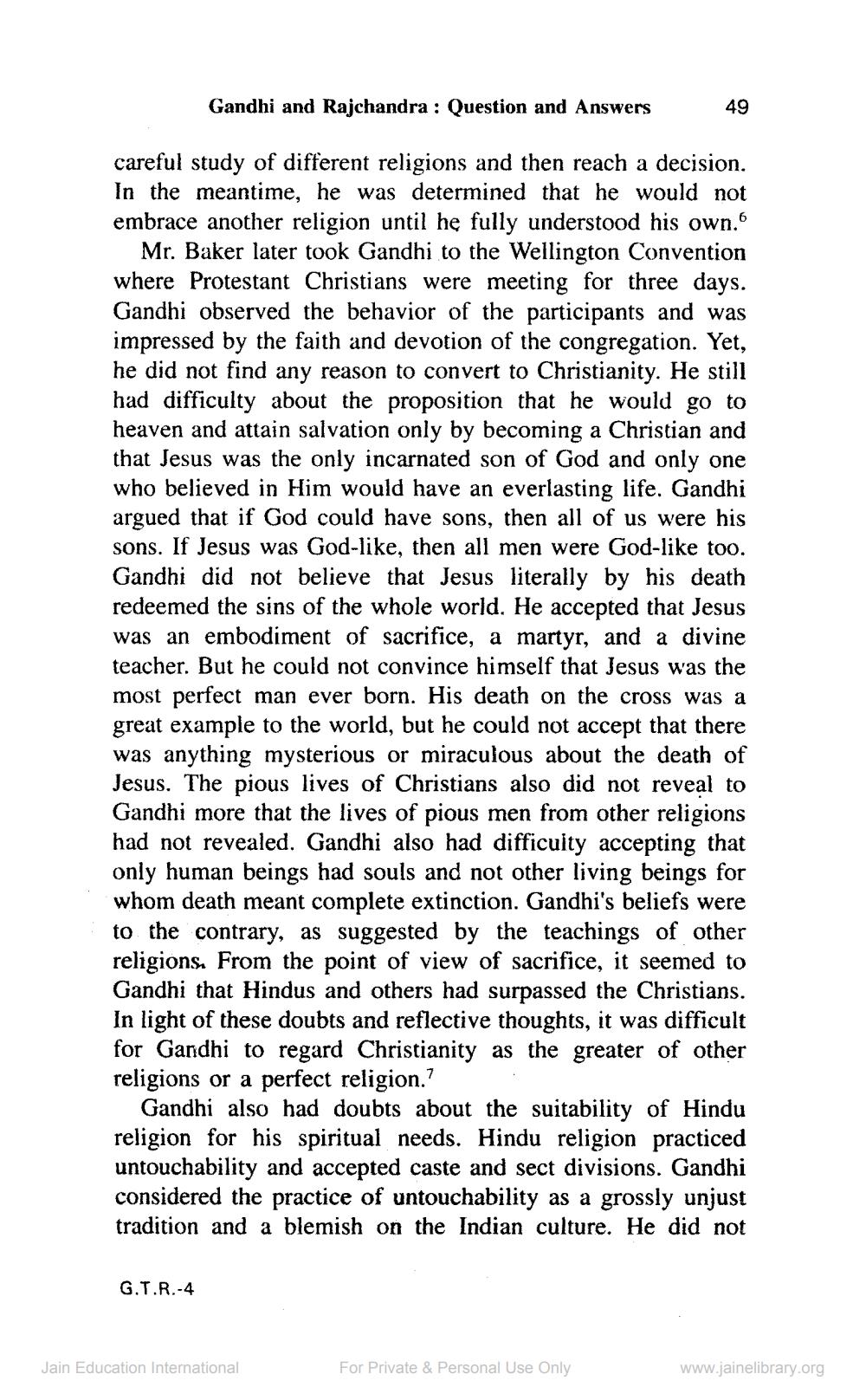________________
Gandhi and Rajchandra : Question and Answers
49
careful study of different religions and then reach a decision. In the meantime, he was determined that he would not embrace another religion until he fully understood his own.
Mr. Baker later took Gandhi to the Wellington Convention where Protestant Christians were meeting for three days. Gandhi observed the behavior of the participants and was impressed by the faith and devotion of the congregation. Yet, he did not find any reason to convert to Christianity. He still had difficulty about the proposition that he would go to heaven and attain salvation only by becoming a Christian and that Jesus was the only incarnated son of God and only one who believed in Him would have an everlasting life. Gandhi argued that if God could have sons, then all of us were his sons. If Jesus was God-like, then all men were God-like too. Gandhi did not believe that Jesus literally by his death redeemed the sins of the whole world. He accepted that Jesus was an embodiment of sacrifice, a martyr, and a divine teacher. But he could not convince himself that Jesus was the most perfect man ever born. His death on the cross was a great example to the world, but he could not accept that there was anything mysterious or miraculous about the death of Jesus. The pious lives of Christians also did not reveal to Gandhi more that the lives of pious men from other religions had not revealed. Gandhi also had difficulty accepting that only human beings had souls and not other living beings for whom death meant complete extinction. Gandhi's beliefs were to the contrary, as suggested by the teachings of other religions. From the point of view of sacrifice, it seemed to Gandhi that Hindus and others had surpassed the Christians. In light of these doubts and reflective thoughts, it was difficult for Gandhi to regard Christianity as the greater of other religions or a perfect religion.?
Gandhi also had doubts about the suitability of Hindu religion for his spiritual needs. Hindu religion practiced untouchability and accepted caste and sect divisions. Gandhi considered the practice of untouchability as a grossly unjust tradition and a blemish on the Indian culture. He did not
G.T.R.-4
Jain Education International
For Private & Personal Use Only
www.jainelibrary.org




